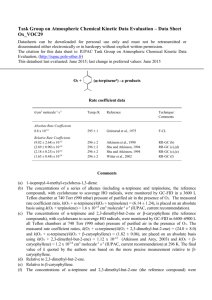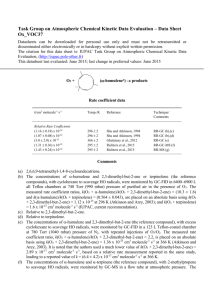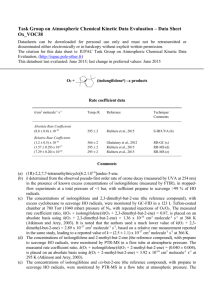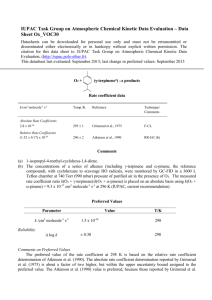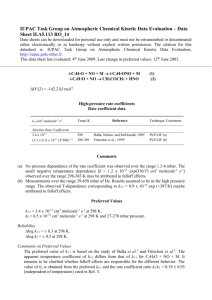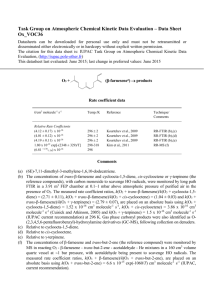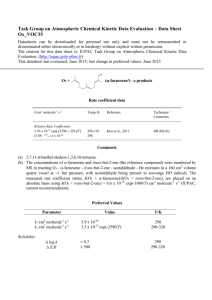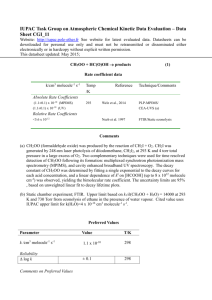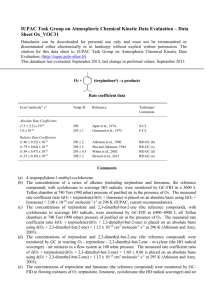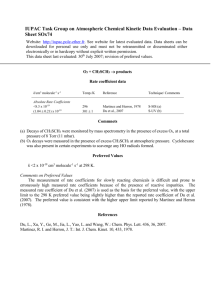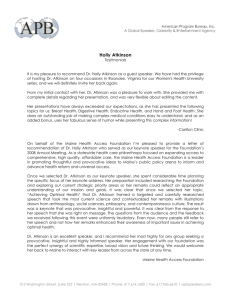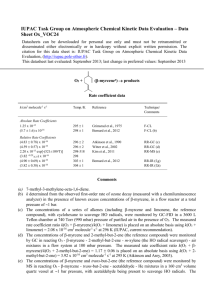Word - IUPAC Task Group on Atmospheric Chemical Kinetic Data
advertisement
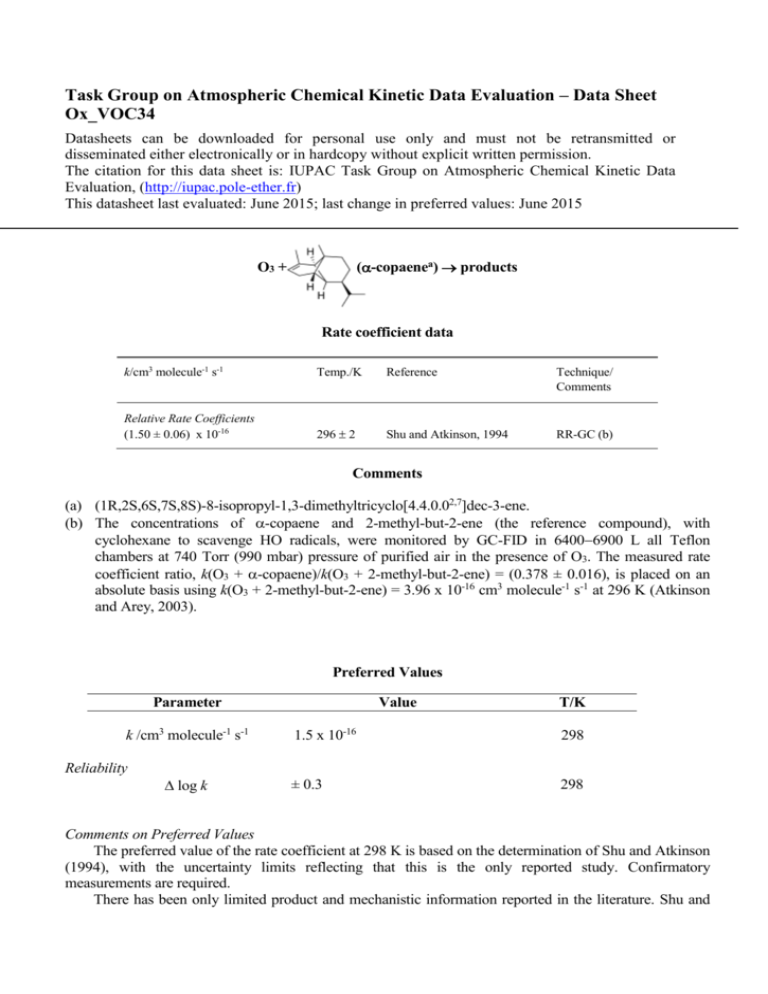
Task Group on Atmospheric Chemical Kinetic Data Evaluation – Data Sheet Ox_VOC34 Datasheets can be downloaded for personal use only and must not be retransmitted or disseminated either electronically or in hardcopy without explicit written permission. The citation for this data sheet is: IUPAC Task Group on Atmospheric Chemical Kinetic Data Evaluation, (http://iupac.pole-ether.fr) This datasheet last evaluated: June 2015; last change in preferred values: June 2015 (-copaenea) products O3 + Rate coefficient data k/cm3 molecule-1 s-1 Temp./K Reference Technique/ Comments Relative Rate Coefficients (1.50 ± 0.06) x 10-16 296 2 Shu and Atkinson, 1994 RR-GC (b) Comments (a) (1R,2S,6S,7S,8S)-8-isopropyl-1,3-dimethyltricyclo[4.4.0.02,7]dec-3-ene. (b) The concentrations of -copaene and 2-methyl-but-2-ene (the reference compound), with cyclohexane to scavenge HO radicals, were monitored by GC-FID in 64006900 L all Teflon chambers at 740 Torr (990 mbar) pressure of purified air in the presence of O3. The measured rate coefficient ratio, k(O3 + -copaene)/k(O3 + 2-methyl-but-2-ene) = (0.378 ± 0.016), is placed on an absolute basis using k(O3 + 2-methyl-but-2-ene) = 3.96 x 10-16 cm3 molecule-1 s-1 at 296 K (Atkinson and Arey, 2003). Preferred Values Parameter k /cm3 molecule-1 s-1 Value T/K 1.5 x 10-16 298 ± 0.3 298 Reliability log k Comments on Preferred Values The preferred value of the rate coefficient at 298 K is based on the determination of Shu and Atkinson (1994), with the uncertainty limits reflecting that this is the only reported study. Confirmatory measurements are required. There has been only limited product and mechanistic information reported in the literature. Shu and Atkinson (1994) reported a yield of HO radicals of (35 +18-12) %; and the studies of Dekermenjian et al. (1999) and Reinnig et al. (2009) provided information on the functional group content of secondary organic aerosol (SOA) formed from -copaene ozonolysis. The mechanism is expected to proceed via addition of O3 to the C=C bond, with the subsequent mechanism following the general framework outlined in the datasheets for other mono- and sesquiterpenes possessing endocyclic C=C bonds (e.g. -cedrene). References Atkinson, R. and Arey, J.: Chem. Rev., 103, 4605, 2003. Dekermenjian, M., Allen, D. T., Atkinson, R., and Arey, J.: Aerosol Sci. Technol., 30, 349, 1999. Reinnig, M.-C., Warnke, J., and Hoffmann, T.: Rapid Commun. Mass Spectrom., 23,1735, 2009. Shu, Y. and Atkinson, R.: Int. J. Chem. Kinet., 26, 1193, 1994.
